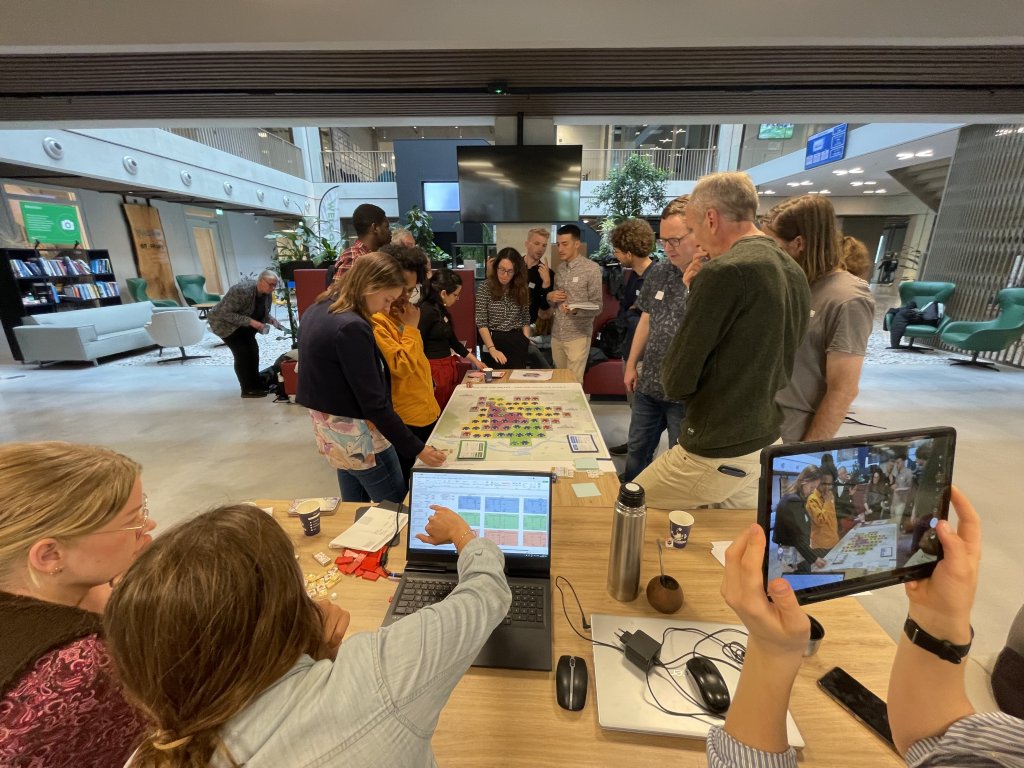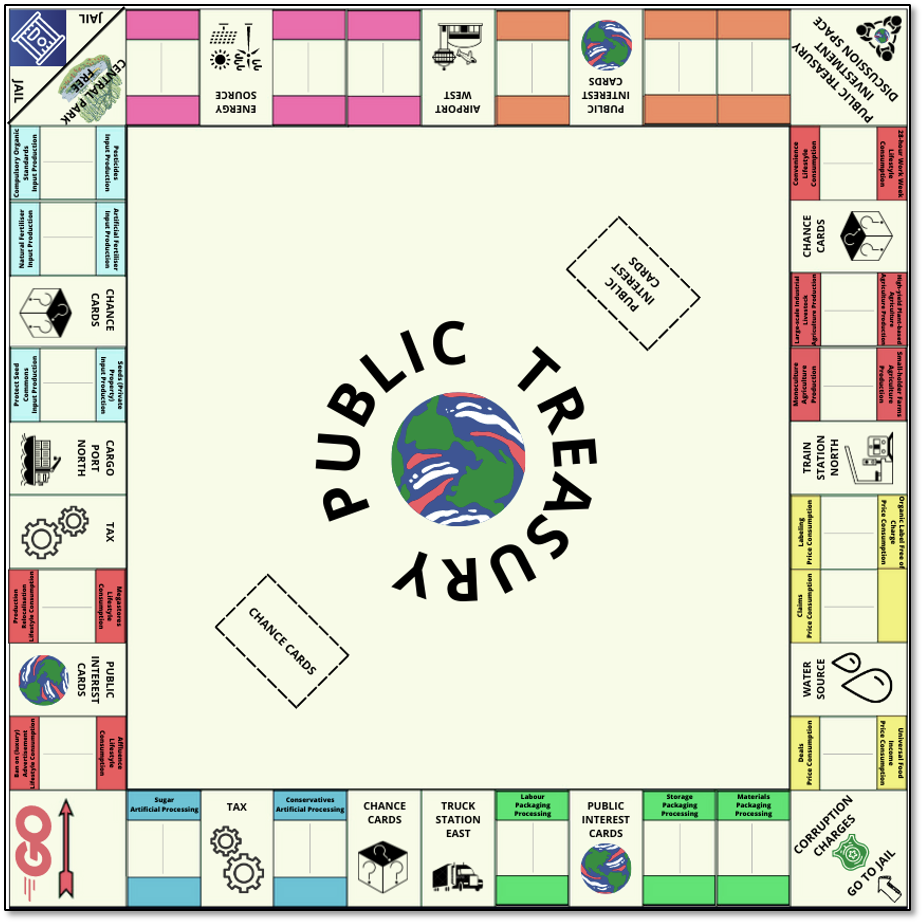Federico Andreotti, Hannah van Zanten, Demi Hordijk, Laura Schütz, Bomburo Studio, Sabine Boerboom, Anna-Lisa Brattinga
Participants are invited to engage with students and researchers, exploring how these serious board games are crafted and to consider their potential impact on food system transformation and activism. How can we facilitate conversations around the redesign of food systems?
To design radical reconfigurations of today’s foods systems, we need complex models capable of quantifying this uncertainty and dialogue tools to reach consensus on future scenarios. But, how can we facilitate that dialogue? Serious games have been extensively employed as a research tool to facilitate consensus among stakeholders. However, their potential for addressing complex systems, like food systems, and emerging scenarios, such as degrowth, remains largely untapped. The design and gameplay hold promise in university education, where they can blend various disciplines and create tools to support transition. The game also shows promise as activist and researcher tools, driving conversations in the context of food system transformation.
We invite participants to engage in three game-related activities:
1. Test a prototype game, based on the Circular Food Systems model (CiFoS) model. Participants are asked to redesign the food system, while exploring trade-offs and synergies linking dietary goals to agricultural practices. The session is presented and facilitated by Federico Andreotti, and the game is designed in collaboration with Bomburo.
2. During the MSc course "Redesigning Global Farming and Food Systems" (FSE32306) at Wageningen University, students were asked to transform system thinking knowledge by designing a tangible tool for policymakers: a serious game. Participants are invited to explore the design process completed by these students. The session is presented and facilitated by Sabine Boerboom.
3. Play "Degrowth Monopoly," a game developed for a master's thesis, in collaboration with the WUR Games Hub. The game connects food system thinking with the World Trade Organization framework. This is done to reimagine international food trade which can coexist within a degrowth-oriented post-growth society. The session is presented and facilitated by Anna-Lisa Brattinga.
A paradigm shift to radically redesign today’s food system is needed to respect human and planetary health, now, and in the future. To achieve this paradigm shift, a consensus must be reached among stakeholders. Stakeholders need to be able to assess the multiple impacts and trade-offs of potential solutions. Serious games and play have shown the potential to not only raise awareness on the current crisis, but also initiate collective action and activism.





